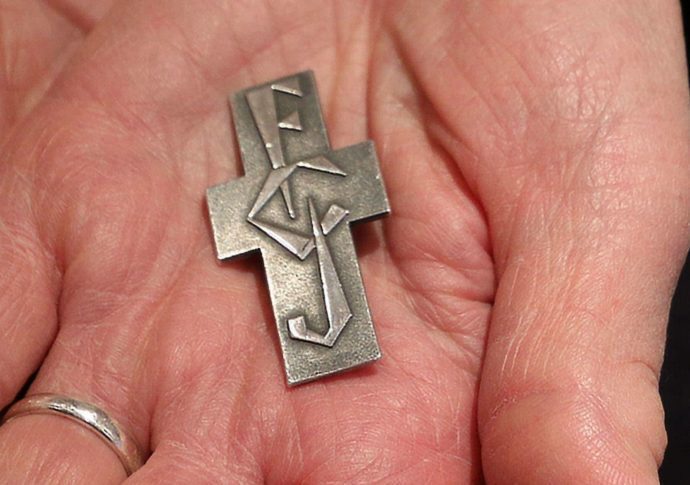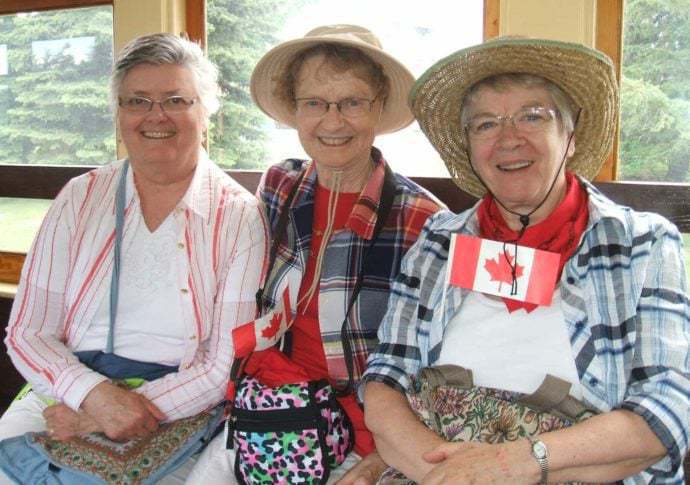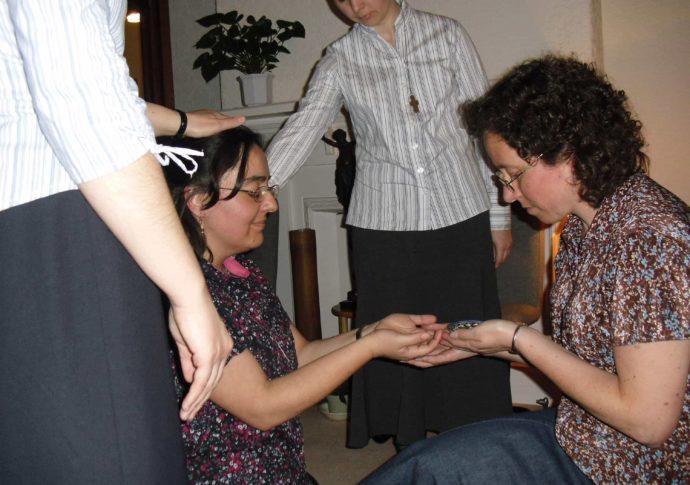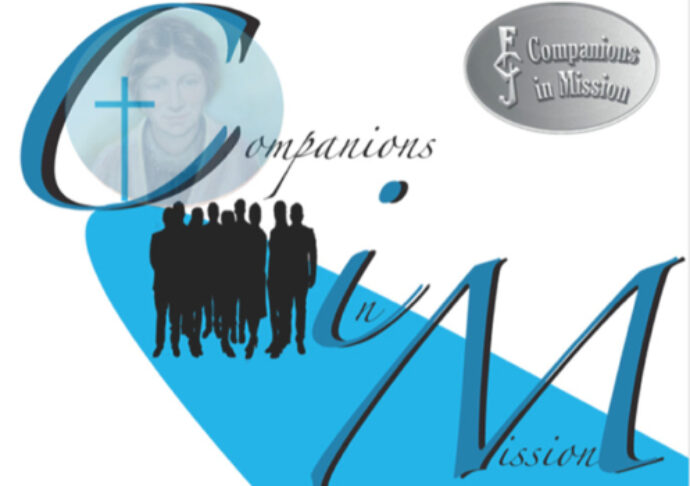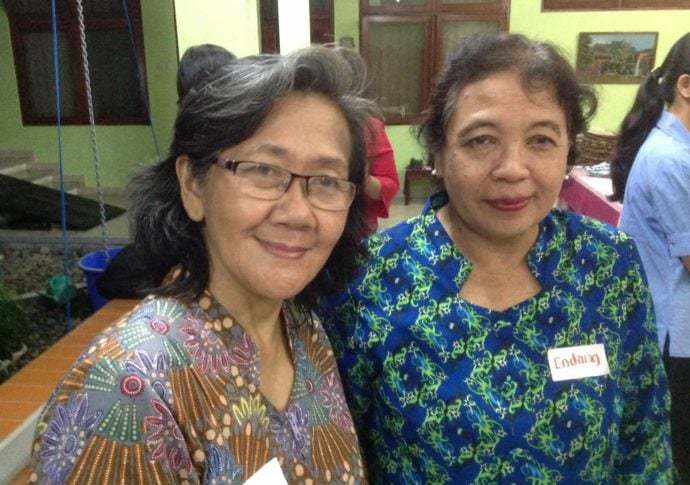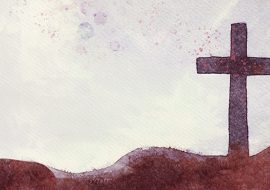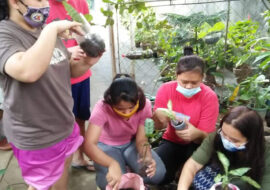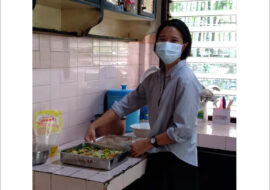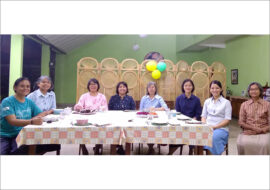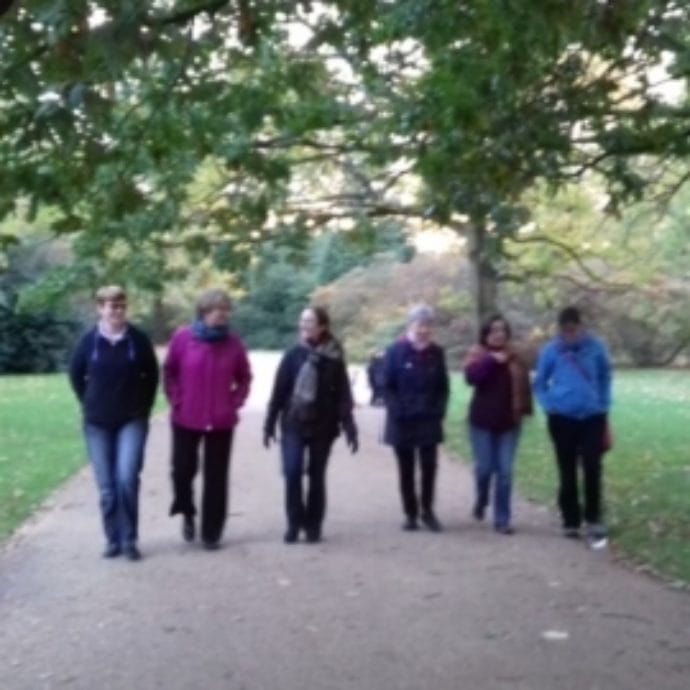A reflection by Sr Audrey fcJ on how the experiences of COVID-19 pandemic have brought us to a liminal space.
First appeared in her blog Surprising Grace
We keep praying that our illusions will fall away. God erodes them from many sides, hoping they will fall. But we often remain trapped in what we call normalcy—“the way things are.” Life then revolves around problem-solving, fixing, explaining, and taking sides with winners and losers. It can be a pretty circular and even nonsensical existence.
To get out of this unending cycle, we have to allow ourselves to be drawn into sacred space, into liminality. All transformation takes place here. We have to allow ourselves to be drawn out of “business as usual” and remain patiently on the “threshold” (limen, in Latin) where we are betwixt and between the familiar and the completely unknown. There alone is our old world left behind, while we are not yet sure of the new existence. That’s a good space where genuine newness can begin. (Liminal Space, by Richard Rohr)
So writes Richard Rohr in his beautifully insightful way. The various forms of ‚lockdown‘ we have experienced in the past few months have certainly brought us to a ‚liminal space‘. Being in this uncertain, in-between place has reminded me of other liminal spaces I have experienced in the past: when I moved into new places and cultures… new ways of living… and really the whole first 3 years of initial formation in religious life. Those were times in which the world as I knew it seemed to have lost its foundations, and I learnt a little of the gentleness and patience it takes to stay with the ups and downs, with the painful shattering of illusions, and let the tender new shoots emerge from what seems like loss — but in reality is the soil where new life takes root.
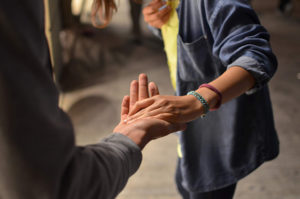 The difference now, of course, is that the experience of liminality we are going through this time is a collective and not just individual one. While each of us makes our own individual journeys through it, we also walk together in the anxiety and loss, as old certainties of who we are in relation to each other, to our Earth and to God, are shaken, exposing the fragilities, fissures and fault lines of society where we once thought was solid ground. But this is also the dark soil of new life.
The difference now, of course, is that the experience of liminality we are going through this time is a collective and not just individual one. While each of us makes our own individual journeys through it, we also walk together in the anxiety and loss, as old certainties of who we are in relation to each other, to our Earth and to God, are shaken, exposing the fragilities, fissures and fault lines of society where we once thought was solid ground. But this is also the dark soil of new life.
While each of us makes our own individual journeys through it, we also walk together in the anxiety and loss, as old certainties of who we are in relation to each other, to our Earth and to God, are shaken.
Some days ago I went walking around the neighbourhood. Our community recently received some donations from friends to help with relief efforts in this time of lockdown. Having decided to apply these funds to helping the homeless in the neighbourhood — who are more than usually food-insecure now — each of us has been taking turns roaming around the neighbourhood in search of those who need help.
As I walked the once-familiar yet strangely empty streets, in some places dead-ended with improvised road blocks of plastic and string, I became aware that I was getting to know this neighbourhood in a new way. While before I walked through them hardly taking in the sights, I was now noticing interesting signboards and plants and little alleys I had not picked out before. But the greatest change was in the way I was looking at people. In the past, everyone seemed to be going about their own business, wrapped in their own concerns, and so likewise was I. But now suddenly here I was, feeling a deep concern for the people I saw and actively seeking to reach out in some small way to the ones I could. It was as if the liminal space had freed us from the roles we usually would slip into without thought.
From stories and news reports, a great number of people all over the world have been jolted unexpectedly into a similar kind of sense of solidarity – of responsibility for each other – that we would otherwise not have felt. Collectively, we are sensing the surprising freedom and capacity – even amidst the helplessness we might sometimes feel – to do something, even something small, that can build the human community. And that is really exciting.
What kind of world would you like to see on the other side of this liminal space?
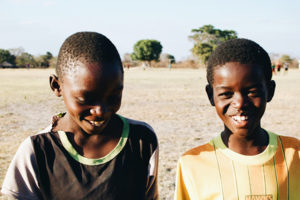 What kind of world would you like to see on the other side of this liminal space? My own experiences of liminality in the past have changed me (though of course much more room for growth remains!), and I pray that this collective experience will also change us in ways that bring us deeper into communion with each other, with nature and with God. Of course, this is not an inevitable process. I was aghast at reading reports of people who are looking forward to ‚revenge shopping‘ as soon as they are allowed out again, and that the American Center for Disease Control is recommending disposable menus, plates and cutlery to prevent the spread of disease when restaurants reopen. I don’t know if – as some postulate – this pandemic is evolution’s way of bringing the planet’s most destructive species back into line, but I can see the dangers of going unthinkingly back to the old materialistic and exploitative ways of living that brought us so out of sync with each other and with the Earth in the first place.
What kind of world would you like to see on the other side of this liminal space? My own experiences of liminality in the past have changed me (though of course much more room for growth remains!), and I pray that this collective experience will also change us in ways that bring us deeper into communion with each other, with nature and with God. Of course, this is not an inevitable process. I was aghast at reading reports of people who are looking forward to ‚revenge shopping‘ as soon as they are allowed out again, and that the American Center for Disease Control is recommending disposable menus, plates and cutlery to prevent the spread of disease when restaurants reopen. I don’t know if – as some postulate – this pandemic is evolution’s way of bringing the planet’s most destructive species back into line, but I can see the dangers of going unthinkingly back to the old materialistic and exploitative ways of living that brought us so out of sync with each other and with the Earth in the first place.
May we continue to live contemplatively this liminal time, and bring its lessons with us and in us as we emerge into a future that we each have responsibility to bring about.
Photos: Pierangelo Bettoni, Rémi Walle, Kamryn Hinojos on Unsplash.






